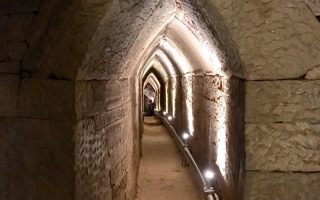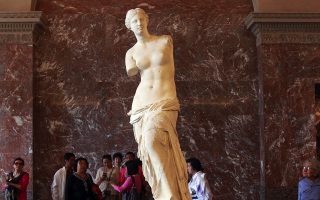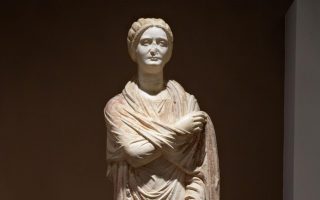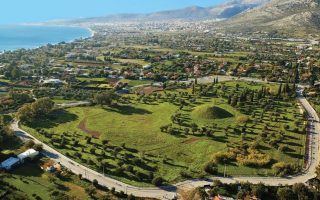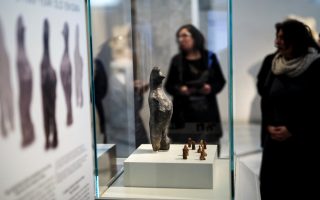Argilos, a multilingual colony
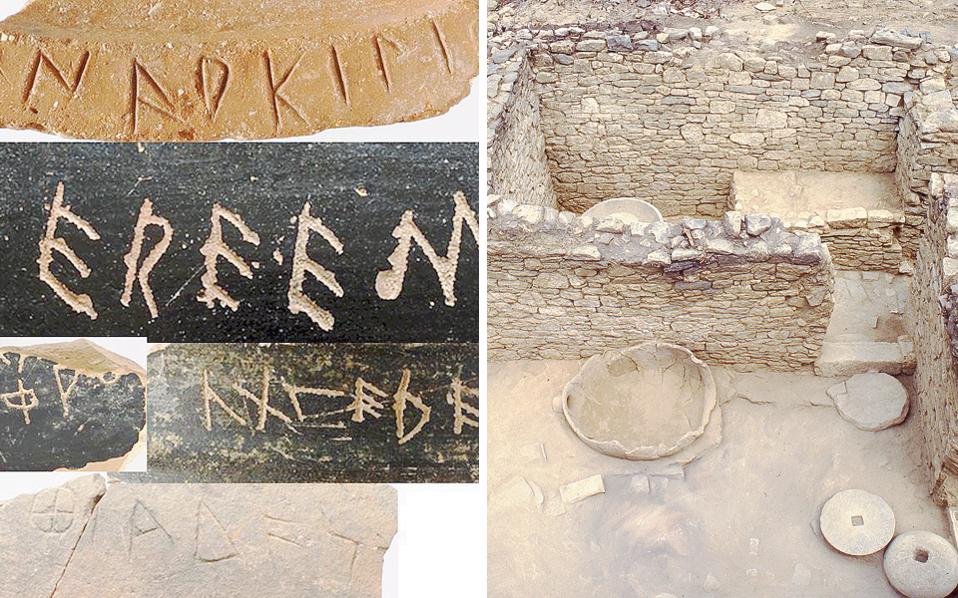
What kind of residential, political and commercial structures did the Greek colonies on the northwestern coast of the Aegean have 2,700 years ago? Which language prevailed when the colonists mixed with the local Thracian population and what was their relationship to the rest of the Hellenic world?
An ongoing joint Greek-Canadian excavation at ancient Argilos – the oldest of the four colonies (the others being Sani, Akanthos and Stageira) established in the region of Macedonia by people from the island of Andros in 655 BC – began in 1992 and the research team, headed by Zisis Bonias and Jacques Perreault, is now able to piece together the first historical narrative about the colony’s gradual Hellenization, its commercial and artistic activities, its heyday in the 5th and 6th centuries BC and its demise in the late 3rd century BC, attributed to the establishment of Amphipolis by the Athenians in 437 BC, just 6 kilometers away.
Argilos was made up of homes in the traditional Aegean style, roads that resembled the small streets of the islands, a commercial center, a system for draining rainwater and a three-story building that in Classical times served as an olive press, the best preserved of its kind in Greece.
Recent evidence, however, has also revealed ceramic objects on which words are written that resemble the Ionic dialect but also point to a variety of different languages and dialects having been used there.
Engravings, symbols and epigraphs on the surfaces of clay objects used in trade or domestic life not only identify the name of the city but also tell us a lot about the evolution of writing in northern Greece and about different aspects of life there from the mid-7th century to the early 3rd century BC.
There are only a few entire words that have been salvaged: a private journal of quantities and payments, a vessel used as a measuring unit, invocations, names and a non-Greek epigraph that is probably a declaration of love, stating that Astiagus is “ugly” and Epigenes “handsome.”
The findings were examined by Yannis Tzifopoulos, a professor of ancient Greek philosophy and epigraphy at Thessaloniki’s Aristotle University, who says they are a variation of the Ionian dialect. Some of the finds suggest that the colonists from Andros used the island’s alphabet in Argilos, though it is not at all certain that this eventually became the colony’s official language.
“The different shapes of the letters point to the likelihood, if not proof, that this was a colony that spoke various languages and dialects,” Tzifopoulos explains, adding that the use of letters can be likened to that of Latin letters to write Greek words, or “Greeklish.”
The 15-hectare site of ancient Argilos stands atop the hill of Palaiokastro, above the Strymonas River delta – a strategic spot, particularly for tapping into Thrace’s natural wealth, and especially its gold and silver. The Thasians and Persians sought to control the city, but as archaeologists explain, only the Athenians managed to establish a foothold in the region.
In its heyday, Argilos had a busting commercial center that also traded in art and helped fund the Delian League. Its influence, however, began to wane as nearby Amphipolis grew more powerful, so that by the end of the 3rd century BC, Argilos was practically deserted. It was never rebuilt in full, even after being conquered by Philip II of Macedon in 357 BC, except in and around the acropolis. The ruins of a mansion at the top of the hill that was built for one of the Macedonian king’s “hetairoi” (influential families and army generals) is a wonderful example of Hellenistic architecture.
There are also a few parts of the olive press still in evidence, such as the millstone, while a replica of the device has been built by the Piraeus Bank Cultural Foundation for the Museum of the Olive and Greek Olive Oil in Sparta in the Peloponnese.

